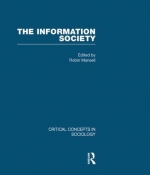Tab Article
‘The information society’ refers to a constellation of developments arising from the growing use of communication technologies in the acquisition, storage, and processing of information, and the role of information in supporting the creation and exchange of knowledge. Research on information societies really began to take off in the 1970s when Daniel Bell wrote about ‘the information age’. While there were earlier works that focused on the growing importance of information in the economy, it was not until the mid-1990s and the spread of the Internet that this field of study experienced a huge expansion across a broad range of disciplines in the social sciences and beyond. A critical mass of scholarship has now accumulated, establishing ‘the information society’ and ‘information societies’ as a terrain of substance and complexity, the exploration and understanding of which requires increasingly sophisticated navigation skills. As research in and around the area continues to flourish as never before, this new title in Routledge’s Major Works series, Critical Concepts in Sociology, meets the need for an authoritative reference work to make sense of a rapidly growing and ever more complex corpus of literature, and to provide a map of the area as it has emerged and developed over the last thirty years or so.
The Information Society is fully indexed and has a comprehensive introduction, newly written by the editor, which places the material in its historical and intellectual context. It is an essential work of reference and is destined to be valued by scholars and students - as well as policy-makers and practitioners in the field - as a vital one-stop research resource.


